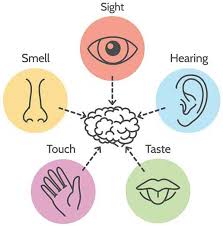March 9, 2020
The theme for Nutrition Month 2020 is “More than Food”. The purpose of this year’s theme is to help encourage healthy eating habits, not only in the foods we buy, but also by reminding that the act of eating can spark true connection and wellbeing. For example, what foods come to mind when you think of your family gatherings? Chances are you can think of quite a few.
Cooking together, involving others of all ages in meal planning and preparation and gatherings around food can be among life’s real pleasures.
Healthy eating is about so much more than food and we should consider not only what we eat, but how we eat too. This year, we invite you to focus on healthy eating habits like:
- Eating mindfully
- Cooking more often
- Eating meals with others
1) Practicing Mindful Eating –
Being mindful of our eating habits means to be aware of:
how you eat? – did you eat slowly?, were you distracted?, did you eat with others?
why you eat? – were you hungry?
what you eat? – what did you eat and drink?
where you ate? – were you in a space meant for eating?
when you ate? – what time was it?, how long ago did you last eat?
how much you ate? – how much did you eat or drink?
When we are mindful of our eating habits, as opposed to being on “auto-pilot”, this allows us to reconnect with our feelings, thoughts, emotions and behaviors. For example, chewing food thoroughly and using the senses by paying attention to the aromas, textures, flavors and taste of food can help to make the food more enjoyable. As a result, we are able to adopt positive changes in our eating behavior by being more aware of the foods we eat and how we eat, which in turn, helps us to make healthier choices.
The sight, smell and presence of food, along with our emotions/feelings can influence when we feel hungry or full. Listening to and following our feelings of hunger and fullness can help decide when and how much we eat. This will help to prevent overeating.
- Tips to recognize hunger and fullness:
– Ask yourself are you really hungry or thirsty? – Drink a glass of water and wait 15 minutes, if you are feeling hunger, then have a snack or meal.
– Pay attention to feelings of fullness – take time to eat and give your body time to digest and feel full before deciding to have seconds. Avoid “distraction” when eating such as, watching tv or using cellphone. Centre the meal around food in order to focus on your feelings.
– Stop a quarter of the way through your meal, and check your hunger level. If you are still hungry, keep eating, but stop again at the halfway point.
– Get in touch with what “satisfied,” or “pleasantly full,” feels like for you. Feeling too full is uncomfortable. It means you ate too much.
For more information and tips on mindful eating, visit the West Toronto Diabetes Education Program (August 2019) blog post on “How Mindful Eating Can Help Manage Your Diabetes”
2) Cooking More Often –
Planning and preparing our meals can help support healthy eating habits. Cooking more often allows us to learn new skills and make foods that our families and friends like to eat.
- Tips to cook more often:
– Cook enough for another meal. Be creative with leftovers to make a whole new meal. (Example: Cook double the amount of chicken or ground turkey and keep extras to use in salads, enchiladas, chilis or in spaghetti sauce).
– When preparing meals, chop or cook extra vegetables to use for other meals or to snack on.
– Use time-saving tools like a slow cooker to cook food during the day or a pressure cooker to reduce cooking time.
– Plan out meals for the weeks. This will help to make healthier choices and limit eating out, along with saving time when grocery shopping. Try to plan meals that have recipes with overlapping ingredients. This will decrease cooking time by making a little extra to use for meals or snacks for another time.
3) Eating meals with others –
Involving others in planning and preparing meals allows us to spend quality time with loved ones while sharing food and cooking traditions. Additionally, it gives an opportunity to learn and share important food skills. While food is often considered a main part of celebrations and special events, however, eating with others does not have to be saved for special events.
- Tips to enjoy meals with others:
– The key to eating with others more often is to start with a plan. Arrange a schedule for meal dates with family/friends.
– Have lunch with coworkers, friends or other community members that you meet at programs.
– Participate in community programs where snacks and meals may be provided. West Toronto Diabetes Education Program offers several diabetes education sessions where community members can engage and enjoy the snacks provided.
– Enjoy the food and social aspect of being together. Once again put away distractions and use the opportunity to connect with those around you.
How you will celebrate this year’s Nutrition Month? Will you practice mindful eating, cooking more often or eating meals with others?
Information Adapted from Canada’s Food Guide: https://food-guide.canada.ca/en/healthy-eating-habits/
For more information on Nutrition Month 2020: More than Food, you can visit:
https://www.unlockfood.ca/en/NutritionMonth-2020.aspx
Visit Cookspiration to see all the Nutrition Month 2020 recipes.
